|
|
|
|
It’s one of the most vexed questions of our time: what can we do about misinformation? How do we deal with a world in which it spreads at the speed of light and no one seems able to stop it?
Over the past two decades the digital media giants such as Google, Facebook and Twitter have grown incredibly rich dodging the question. First, they evangelised a media utopia in which users were entirely free to decide what they post and what they consume. When cracks started to appear they argued they were not really publishers and could not be held responsible.
Now, as the global COVID pandemic exacts a heartbreaking human toll, that jig is clearly up. Everyone can see that the damage of misinformation is too great. The tech giants are starting to remove content that is wrong and dangerous. They are also funding journalism. Google is even funding fact checking projects aimed at debunking misinformation about vaccines.
These developments are welcome, but are they enough? Debunking misinformation is vital, but it treats the symptoms not the disease. We also need to ensure there is enough quality information in our media ecosystem in the first place.
We need to make high-quality and reliable information free to everyone. And we need to be creative about how we present it so it is clear and compelling. It needs to reach young people and the elderly, the disenfranchised, diverse and socially isolated.
This has been the mission of The Conversation since we launched in Melbourne in 2011. Everything we publish is written by an academic expert and is free to read, and free to republish. We want to ensure quality information reaches everyone, not just a select few. Our small passionate team is absolutely committed to it – with every passing day the need becomes clearer and our resolve only grows.
Now we need your help. Yesterday we launched our annual donations campaign. It’s the one time every year when we turn to our loyal readers and ask those who can afford to give to support our work. If you’re able to make a donation please do.
And if you’re not that flush with cash there are other ways you can help. Please keep reading us, tell your friends about us, and share our work on social media and everywhere you can.
Thanks for supporting us, however you do it. The war against misinformation is going to be long and possibly gruelling. But with your help we stand a chance.
|
Misha Ketchell
Editor & Executive Director
|

|
|

Lukas Coch/AAP
Peter Martin, Crawford School of Public Policy, Australian National University
The budget is Australia's State of the Union. It's the only night of the year the government sets out a program against which it can be held accountable.
|
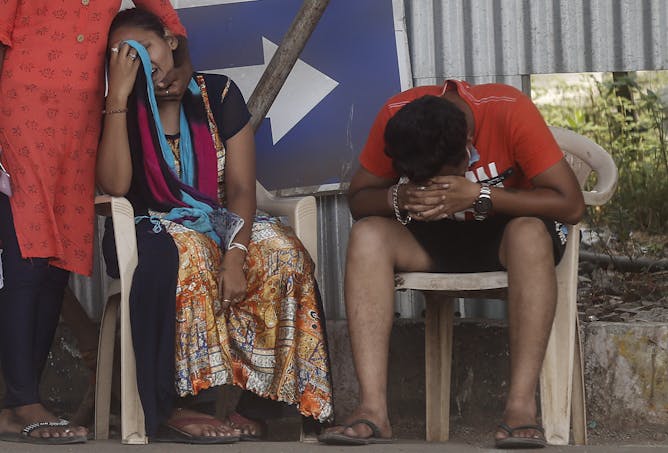
Rafiq Maqbool/AP/AAP
Paul Komesaroff, Monash University; Ian Kerridge, University of Sydney; Wendy Lipworth, University of Sydney
Providing foreign aid is not always straightforward. But here are some practical ways Australia might be able to help India.
|

KYDPL KYODO/AP
John Blaxland, Australian National University
There are four potential flash points where conflict with China could break out. Beijing, though, has yet to present a 'nail' to the US 'hammer'.
|
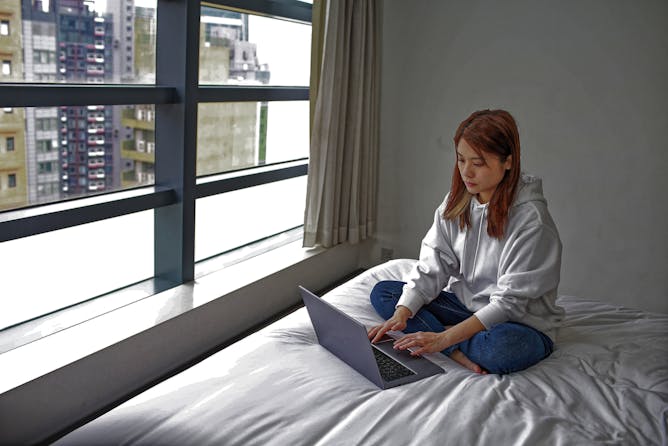
Shutterstock
Melissa Conley Tyler, The University of Melbourne
International students have been admirably persistent in studying online for more than a year. But as other countries open their doors, Australia risks losing them if it fails to show they are wanted.
|
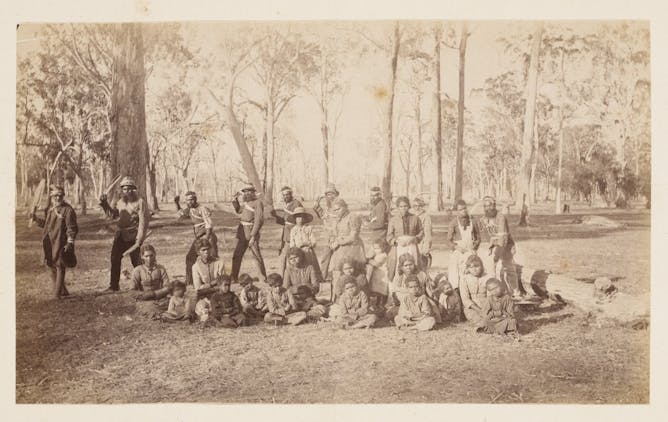
A Gunaikurnai Jeraeil re-enactment c.1883 with men, women, and children. Left to right: (standing) Big Joe, Billy the Bull, Wild Harry, Billy McDougall, Snowy River Charlie, unidentified man, Bobby Brown, Billy McLeod (Toolabar), Larry Johnson. Woman, second from right: Emma McDougall.
State Library of Victoria
Jason M. Gibson, Deakin University; Russell Mullett, Indigenous Knowledge
It was the site of historic gatherings, such as a four-day initiation ceremony for young men. Then colonial authorities quashed such practices. The place was lost for more than a century, until now.
|
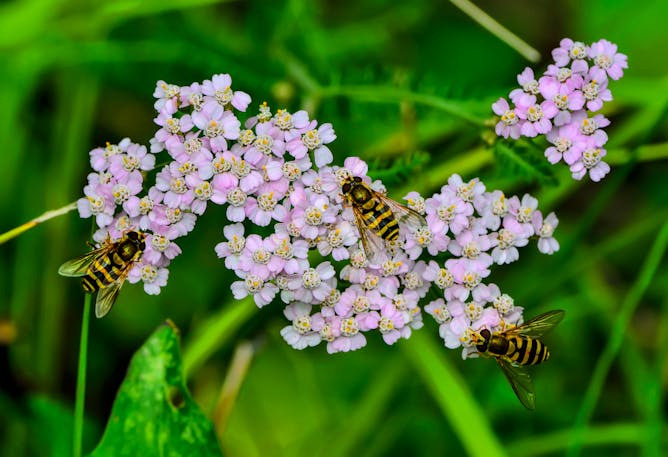
Shutterstock
Tanya Latty, University of Sydney
Planting a garden for winter-active insects is a wonderful way to support local biodiversity. Your garden will thrive with the free pollination and pest control services the insects provide.
|
New Zealand
|
-
Kaaren Mathias, University of Canterbury
COVID-19 has overwhelmed India's hospitals partly because decades of under-investment in public health have left the country with one of the most privatised health systems in the world.
-
Louise Humpage, University of Auckland
Life on social welfare can feel 'soul destroying'. The May 20 Budget could start to fix that — but an unemployment insurance scheme isn't the right solution.
|
|
Science + Technology
|
-
Mohiuddin Ahmed, Edith Cowan University
Bitcoin has been widely criticised for its enormous energy footprint. A new cryptocurrency may solve that problem, but might bring some unintended consequences.
-
Steven Freeland, Western Sydney University
China's Long March 5B rocket, after a successful blast-off in April to deliver a space station module, is now on track to crash-land somewhere with a latitude between New York and New Zealand.
-
Ben Egliston, Queensland University of Technology; Jane Mavoa, The University of Melbourne; Marcus Carter, University of Sydney
There's not enough scholarly evidence to suggest game companies can control our minds or our wallets.
-
Jeremy Moses, University of Canterbury; Geoffrey Ford, University of Canterbury
Marketing for robotic 'dogs' plays up their potential for good, but the debate about lethal autonomous weapons suggests public anxiety is warranted.
|
|
Politics + Society
|
-
Michelle Grattan, University of Canberra
How hard is Scott Morrison willing to poke the panda? That's a question posed by the government's review of the Chinese company Landbridge's 99-year lease of the Port of Darwin.
-
Sangeetha Pillai, UNSW
Everyone from human rights experts to famous cricketers are expressing their disgust at the federal government's India travel ban. Its legality depends on what laws you are looking at.
-
Georgia Cervin, The University of Western Australia
A scathing report has detailed physical, psychological and sexual abuse within Australian gymnastics, particularly for the young girls it was meant to be nurturing.
|
|
Education
|
-
Jared Mondschein, University of Sydney; Rajat Roy, Bond University; Vik Naidoo, University of Sydney
The federal government is right to focus on improving Australian universities' success rate in commercialising research, but can specific steps itself to help achieve this.
|
|
Arts + Culture
|
-
Nicholas Godfrey, Flinders University
Wake in Fright premiered at Cannes in 1971 but met with a shocked reaction. It largely fell into obscurity for 40 years, yet is now considered a classic.
|
|
Environment + Energy
|
-
Robert McLachlan, Massey University
When Antarctica's land-based ice melts, the land bounces up slightly as the weight of the ice lifts. This affects sea levels across the world, but not enough to offset sea-level rise.
|
|
Health + Medicine
|
-
Gideon Meyerowitz-Katz, University of Wollongong
It's quite likely this virus will never be eliminated from the world. But even so, getting vaccinated enormously reduces your risk of severe outcomes like hospitalisation and death.
|
|
Columnists
|
|
|
| |
Featured jobs
|

|
— Townsville QLD, Australia
|

|
— Canberra ACT, Australia
|

|
— South Wharf VIC, Australia
|
|
|
|
| |
| |
| |
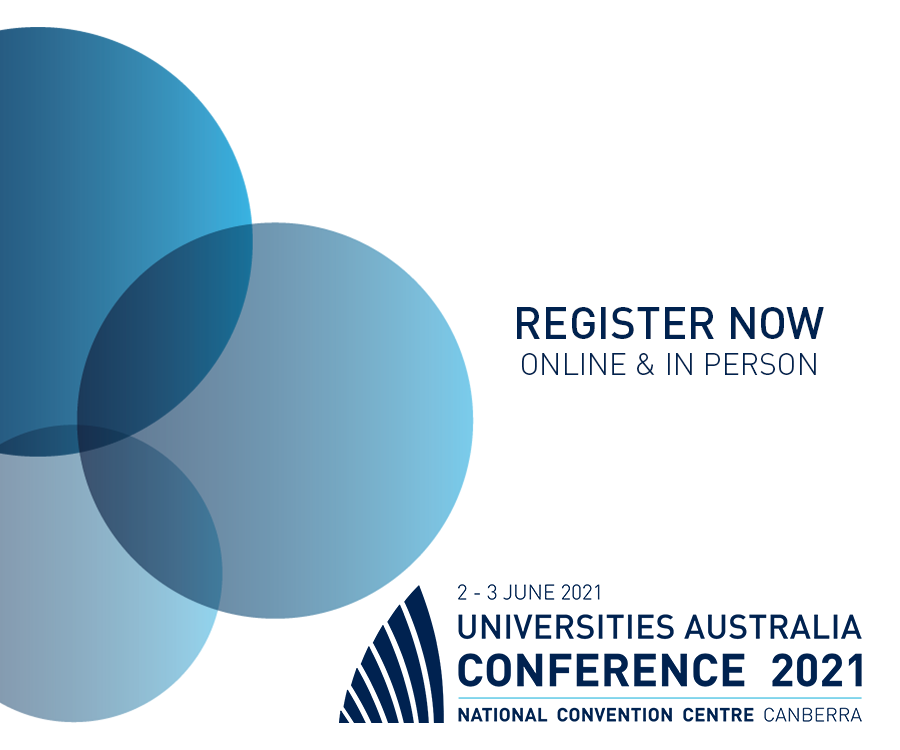
|
| |
| |
| |
Featured Events & Courses
|

|
Level 21, 15 Broadway, Ultimo, New South Wales, 2007, Australia — University of Technology Sydney
|

|
8 week online course by BehaviourWorks Australia, Clayton, Victoria, 3800, Australia — Monash University
|

|
online webinar, Perth, Western Australia, 6009, Australia — The University of Western Australia
|
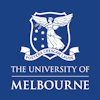
|
Online, Parkville, Victoria, 3109, Australia — The University of Melbourne
|
|
|
|
| |
| |
| |
| |
| |
|
|
|
|
|
|
|